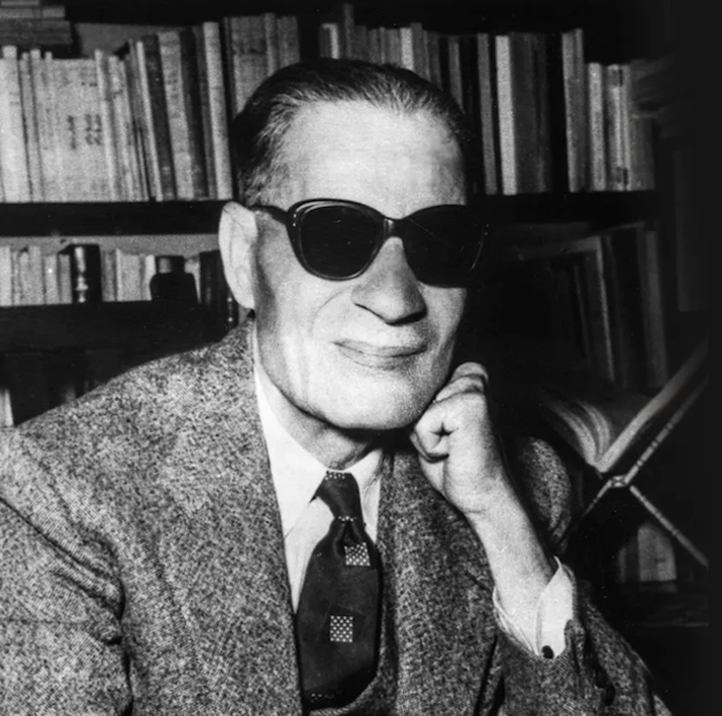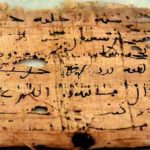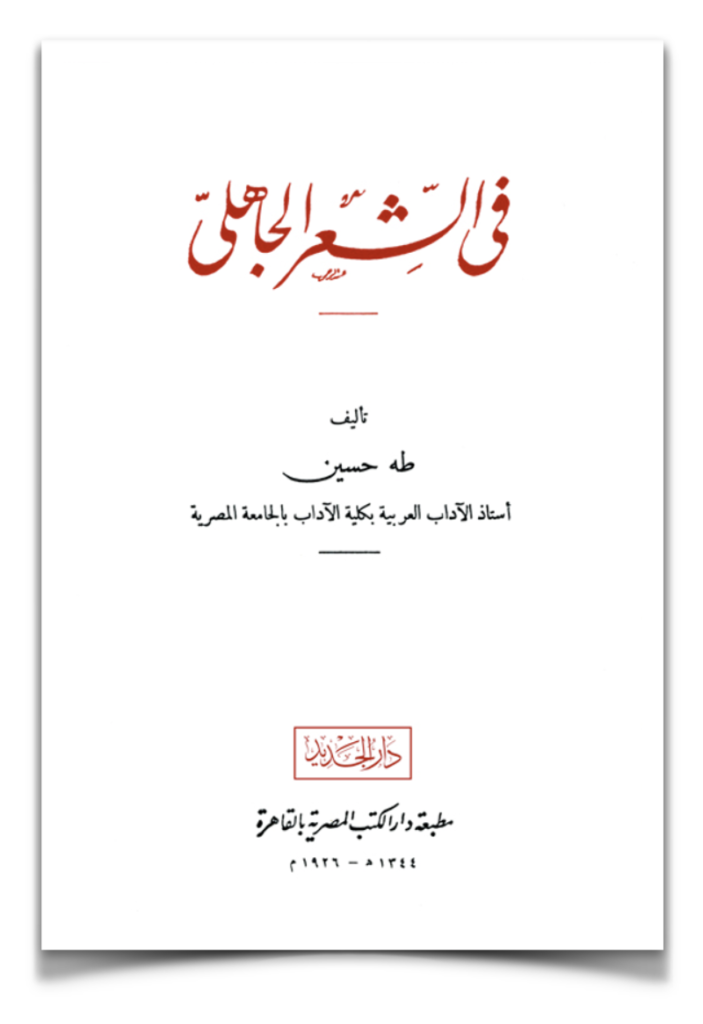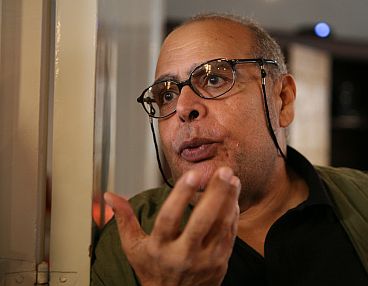
The importance of Taha Hussein’s book On Pre-Islamic Poetry goes beyond the literary and critical issues that it raised, since he went so far as to say that “the overwhelming majority of what we call pre-Islamic poetry is not pre-Islamic at all”.[1] This assumption was not new to Arab thought and criticism. Centuries earlier Ibn Salām al-Jamaḥī (757-845) mentioned this in his work Ṭabaqāt Fuḥūl al-Shuʽarā’ (‘Classes of Champion Poets’).
THE CONTROVERSY RAISED by Taha Hussein’s book goes beyond its subject matter, and its true importance lies in his establishing a secular scientific research method in questions of heritage and religious thought. It is thus considered a prominent milestone in the trajectory of Arab thought. For in On Pre-Islamic Poetry – and after centuries of the consolidation and domination of the doctrinal over the scientific – we are confronted with two separate intellectual paths: the first being scientific, critical, systematic thought, which questions the belief through doubt, analysis, criticism and evaluation, accepting only what demonstrative scientific thought leads to in terms of evidence – and another path that makes belief the evidence, accepting it as an act of faith, not as a proof.
This way, the epistemological goal which Taha Hussein proceeds from is one of separating off the scientific discourse from the belief discourse, and defining the connection between the two. The scientific field is one of skepticism and is subject to continuous development and research. Its methodology is scientific, and its goal is demonstrative certainty, while the field of religious discourse is submission, and is subject to a static, not evolutionary principle. Its goal is untroubled faith. The difference between them
is a difference between the doctrine of faith, which produces reassurance and contentment, and doubt, which causes anxiety and confusion.[2]
In the religious methodology, we accept what is firmly established and inherited from the ancestors, so that
everything is left where the ancients left it, and is not touched by any change or alteration (…), In the other doctrine ancient science is turned upside down.
From this context of skeptical knowledge, religious facts are not binding on scientific discourse, but are rather distinct from it. Religious storytelling does not have to be accepted as an objective, historical fact that does not accept doubt or denial. If the Torah tells us about Abraham or Ishmael, and the Qur’ān also tells us about them, then their existence in the Torah and the Qur’ān is not sufficient to prove their historical existence.
Questioning belief, then, requires liberation from it, and the first condition of this liberation is the adoption of the Cartesian principle:
that the researcher divest himself of everything he knew before, and that he receive the subject of his research entirely emptied of what was said before on it.[3]
It is clear that Taha Hussein is here steeped in positivism or scientism. Assuming total liberation from the historical or societal condition of appealing to the heritage is something that cannot be taken for granted in contemporary hermeneutical methodologies. But the endeavor of Taha Hussein, illustrated by the above quote from Decartes, is an endeavour aimed at overturning the established, prevailing system of knowledge acquisition, which assumes the prioritisation of the religious over the scientific.
On Pre-Islamic Poetry: from the university to Parliament and the judiciary
If we accept the relationship between the discourse of knowledge and power, then power is in turn networked and linked to the established institutions. All knowledge is subject to the conditions of the discourse and the rules of institutional practice. In this way, any attempt at breaking with the rules that produce the authoritarian discourse will be faced with institutional repression.
It is in light of this interdependence that the recurring issues in Arab thought can be explained – from the thought of the Sheikh of Al-Azhar Muḥammad ‘Abduh, through Muḥammad Aḥmad Khalaf Allah, and on and beyond Naṣr Ḥāmid Abū Zayd. Since Taha Hussein constituted a qualitative revolution in discourse concerning the hierarchy of the relationship between the belief and science, and since he was deviating from the rules of truth in the dominant epistemological system, then this revolution was bound in the real world to be met with institutional counter-action and repression.
The epistemological goal which Taha Hussein proceeds from is one of separating off the scientific discourse from the belief discourse
The intellectual battle was accordingly transferred to Parliament and the Council of Ministers, and thence to the judiciary. The bearer of this repression was the institution of Al-Azhar, along with conservative parliamentary forces, and criticism of him passed from the realm of epistemological discourse to the arena of a criminal, judicial contest and a parliamentary, political contest. The law case lasted from 1926 to 1932.
What was originally an intellectual conflict was turned by the Al-Azhar Foundation into a criminal case when the Sheikh of Al-Azhar and the head of the religious institutes commissioned a committee of Al-Azhar scholars to examine the book and published a Report on it on May 8 1926.
It is clear from the Committee’s Report that it distorted the methodological epistemological question from its scientific domain towards the domain of takfīr – the declaration of the author as a ‘non-believer’ . It thus did not read Taha Hussein’s discourse in its epistemological meaning, but rather read it from the perspective of belief. The Committee duly issued its recommendations on the need to combat
the atheistic influence in education, and uproot this evil from its roots, and purify the role of a (non-religious) education that some are working to spread by planning and rulings under the guise of freedom of opinion.[4]
Here, the language of epistemological criticism is absent, and replaced by a language of accusation and doctrinal takfīr. Building on this accusatory context, the case moved to the courts when Khalīl Hassanein, a student in the higher department of Al-Azhar, filed a case with the Public Prosecutor accusing Taha Hussein of having written a book explicitly challenging the Islamic faith. It is a deficient claim and one based on a misunderstanding, due to the unawareness of any distinction between the boundaries of religious and scientific discourse. If we were to broaden the circle of this ideological conflict, then we could say that the conflict raised by Taha Hussein on pre-Islamic poetry went far beyond its author and pointed towards the university institution to which he belonged. The intellectual battle raised by the book characterizes
the question of a university, as modern educational institution, entering into the Arab cultural sphere.[5]
In this context, we notice in Al-Azhar’s statement the focus of criticism on the institution that enabled Taha Hussein to produce a discourse that deviated from the conditions and rules for producing a Azharī discourse. We also find in the statement frequent claims that Taha Hussein should be dismissed from his institutional work as a university teacher.

Suggested Reading
Given the above, it is not surprising that the question in Parliament concerning university’s budget coincided with the intellectual question of Taha Hussein’s book and the takfīr pronounced upon him by the conservative forces in the Parliament (‘Abd al-Khāliq ‘Aṭṭiya, al-Qāyātāy). Taha Hussein, according to their claim,
is a first-born son of the university, which spent the Nation’s money on him and never imagined that this act of charity would be met with disobedience.[6]
Some forces in Parliament then proposed:
- Confiscating Taha Hussein’s book On Pre-Islamic Poetry;
- Assigning the Public Prosecution to bring a lawsuit against him;
- Abolishing his university position.
The abolishing here went beyond Taha Hussein’s thought and extended to the institutional position that he occupied, and indeed to the entire institution itself. This condemnation came from a realization that Al-Azhar, which represents the traditional religious institution, no longer had a monopoly on the authority of religious discourse, since the university had become a competitor to it, with its own discourse and its own institutional system.
Our scientific institutions and their exponents are part of this failure, and in a deep sense an extension of it
If the prosecution’s verdict in 1927 was to acquit Taha Hussein judicially of the charge of ‘issuing an offence’, the intellectual acquittal is still pending, and remains hostage to history. For we find an echo of the tragedy faced by Taha Hussein both in the past with Ibn Rushd and in the present with the case of Naṣr Ḥāmid Abū Zayd[7] and others.
All this confirms that the issue of secularization is still at stake, and that the struggle for enlightenment remains a long and thorny one. If the Cartesian principle of methodological doubt awakened the European mind from its doctrinal slumber, then the Arab methodological doubt still remains a wasted possibility in the Arab context. A century after this incident, we are not surprised by the reality of our scientific institutions and their exponents, for they are part of this failure, and in a deep sense an extension of it.
[1] Taha Hussein, في الشعر الجاهلي (‘On Pre-Islamic Poetry’), p.17. (Editor’s note: for this work see the Almuslih Library here ).
[2] Taha Hussein, Op. cit., p.12.
[3] Taha Hussein, Op. cit., p.19.
[4] Al-Manār Magazine, Vol. 2/130, May 1923.
[5] Muḥammad Kamil al-Khaṭīb, القديم والجديد, p.16.
[6] From Muḥammad Kamil al-Khaṭīb, Op. cit., p.144.
[7] Professor Naṣr Ḥāmid Abū Zayd (1943-2010) was refused tenure as full professor at Cairo University on the basis that his writings ‘promoted the idea of the historicity of the Qur’ānic Text, which is a priori incompatible with the demands of the Faith’ and therefore constituted apostasy. As a result of uncontested and undisputed fatwas calling for his takfīr and calling for the dissolution of his marriage to his wife Ibtihal Yunis, the couple had to emigrate to the Netherlands where he continued his work and taught at the University of Leiden. (Ed.)
See Part One of this essay here


